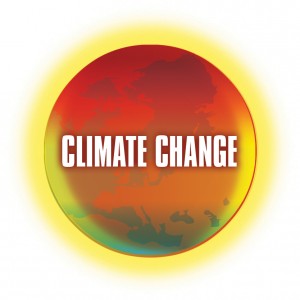STOCCOLMA - Per la prima volta, scienziati del clima più importanti del mondo il Venerdì formalmente abbracciato un limite superiore sui gas a effetto serra, mentre avverte che si rischia di essere superato nei decenni, se le emissioni continuano ad un ritmo sostenuto, sottolineando le profonde facce sfida l'umanità nel portare il riscaldamento globale sotto controllo.
Una giuria di esperti nominati dalle Nazioni Unite, svelando la sua ultima valutazione della ricerca sul clima, rafforzato le sue precedenti conclusioni che il riscaldamento globale è reale, che è causata principalmente se non esclusivamente da emissioni umane, e che è probabile che per ottenere sostanzialmente peggiore a meno sforzi per limitare queste emissioni sono in rapida accelerati.
“Human influence has been detected in warming of the atmosphere and the ocean, in changes in the global water cycle, in reductions in snow and ice, in global mean sea level rise, and in changes in some climate extremes,” the report said. “It is extremely likely that human influence has been the dominant cause of the observed warming since the mid-20th century.”
Going well beyond its four previous analyses of the emissions problem, the Intergovernmental Panel on Climate Change endorsed a “carbon budget” for humanity — an upper limit on the amount of the primary greenhouse gas, carbon dioxide, that can be emitted from industrial activities and forest destruction.
Per le migliori probabilità di mantenere il riscaldamento planetario sotto di un obiettivo concordato a livello internazionale di 3.6 gradi Fahrenheit sopra dei livelli preindustriali ed evitando così gli effetti più pericolosi del cambiamento climatico, il pannello trovata, solo 1 trilione di tonnellate di carbonio possono essere bruciati e il gas risultante vomitato in atmosfera.
Poco più della metà di tale importo è già stato emesso dall'inizio della rivoluzione industriale, e ai tassi attuali di consumo di energia, la tonnellata trilionesimo verrà rilasciato intorno 2040, secondo i calcoli di Myles R. Allen, uno scienziato presso l'Università di Oxford e uno degli autori del nuovo rapporto gli autori. Oltre 3 trilione di tonnellate di carbonio sono ancora lasciati nel terreno come i combustibili fossili.
Limitare il riscaldamento al concordato target "è tecnicamente fattibile, but at the moment we’re not going in the right direction,"Dr. Allen said in an interview. “I don’t think we’ll do it unless we bite the bullet and start talking about what we’re going to do with that extra carbon that we can’t afford to dump into the atmosphere.”
To keep using fossil fuels beyond the trillionth ton of emissions, companies would have to develop potentially expensive technology to capture carbon dioxide from emissions sources like power plants and store it underground. Such efforts have been lagging badly; only last week, Norway scaled back one of the most ambitious such projects because of soaring costs.
But a considerable body of research suggests that in principle it could be done, and in the United States, the Obama administration is moving toward rules that would essentially require utilities to develop the technology if they want to keep burning coal to produce electricity. In response, the president’s Republican opponents have accused him of waging a “war on coal.”
The new report from the intergovernmental panel was released on Friday, after an all-night editing session that followed a week of discussion behind closed doors in Stockholm. The substantive points did not change greatly from a draft that was leaked in August, though the new version was extensively revised for clarity.
Dato che 1990, the intergovernmental panel has been the primary scientific body advising the world’s governments about the risks of global warming. Every five or six years, hundreds of scientists on the committee assess thousands of published papers about climate change, giving their view of which are most likely to be accurate.
The group has now issued five major reports, each of them finding greater certainty that the world is warming and greater likelihood that human activity is the principal cause. The new report finds a 95 a 100 percent chance that most of the warming of recent decades is human-caused, su dal 90 a 100 percent chance cited in the last report, in 2007.
But the new document also acknowledges that climate science still contains huge uncertainties, including the likely magnitude of the warming for a given level of emissions, the rate at which the ocean will rise, and the likelihood that plants and animals will be driven to extinction.
The group won the Nobel Peace Prize in 2007, along with Al Gore, the former U.S. vice president, for highlighting the climate problem. But it came under attack in recent years by climate-skeptic organizations, who began to assail to the new report as alarmist even before it was published. The Heartland Institute, a Chicago organization that once compared climate scientists to the Unabomber, claimed in a report it released last week that any additional global warming would likely be limited to a few tenths of a degree and this “would not represent a climate crisis.”
Climate scientists not involved in writing the new report said that, in reality, the authors had made a series of conservative choices in their assessment of the scientific evidence. Regarding sea level, per esempio, they gave the first firm estimates ever contained in an intergovernmental panel report, declaring that if emissions continue at a runaway pace, the rise by the end of the 21st century could be as much as three feet. They threw out a string of published papers suggesting a worst-case rise closer to five feet.
Similarly, the authors went out of their way to include a recent batch of papers suggesting the earth might be somewhat less sensitive to carbon dioxide emissions than previously thought, even though serious questions have been raised about the validity of those estimates.
The new report lowers the bottom end of the range of potential warming that could be expected to occur if the carbon dioxide level in the atmosphere were to double, overturning a decision the panel made in the last report and restoring a scientific consensus that had prevailed from 1979 a 2007. Six years ago, that range was reported as 3.6 a 8.1 gradi Fahrenheit; the new range is 2.7 a 8.1 gradi.
“The I.P.C.C. is far from alarmist — on the contrary, it is a highly conservative organization,” said Stefan Rahmstorf of the Potsdam Institute for Climate Impact Research in Germany, whose papers on sea level were among those that got discarded. “That is not a problem as long as the users of the I.P.C.C. reports are well aware of this. The conservatism is built into its consensus structure, which tends to produce a lowest common denominator on which a large number of scientists can agree.”
A Washington, the White House praised the new report. President Obama’s science adviser, John P. Holdren, said in a statement that it “conveys scientists’ strengthened confidence in projections that the kinds of harm already being experienced from climate change will continue to worsen unless and until comprehensive and vigorous action to reduce emissions is undertaken worldwide.”
The United States was for many decades the world’s largest emitter of greenhouse gases, though it was surpassed a few years ago by China. Si rifiutò di accettare un trattato chiamato il Protocollo di Kyoto che ha cercato di limitare le emissioni globali, notevolmente indebolendo quello sforzo, e gli sforzi per passare una politica climatica globale per gli Stati Uniti non sono riusciti subito dopo il signor. Obama si è insediato.
Ma ha recentemente abbracciato la questione di nuovo, dichiarando la sua intenzione di usare potere esecutivo sotto il Clean Air Act per limitare le emissioni. Tali operazioni negli Stati Uniti, così come l'aumento ambizione in molti altri paesi, hanno portato a rinnovate speranze per un ambizioso trattato globale sul clima in 2015.
Rivolgendosi ai delegati di Stoccolma di collegamento video, il segretario generale delle Nazioni Unite, Ban Ki-moon, ha detto che avrebbe chiamato i capi di stato a una riunione di tutto il mondo il prossimo settembre per cercare di creare lo slancio per un accordo globale.
"Il calore è in,"Mr. Ban declared. “Now we must act.”
“Continuing rapid emissions now is kicking the climate can down the road, leaving climate change for our children and grandchildren,” said Christopher B. Field, una voce un sottogruppo del pannello intergovernativo che emetterà un rapporto il prossimo anno, sugli impatti climatici scienziato americano. «Ma è calci una lattina che arriva a essere più grande, più pesante e più difficile da muoversi con ogni calcio ".
Fonte: New York Times



Nessun Commento
Commenti per Panel Climate Dice limite massimo delle emissioni è in fase di sono ormai chiuse.